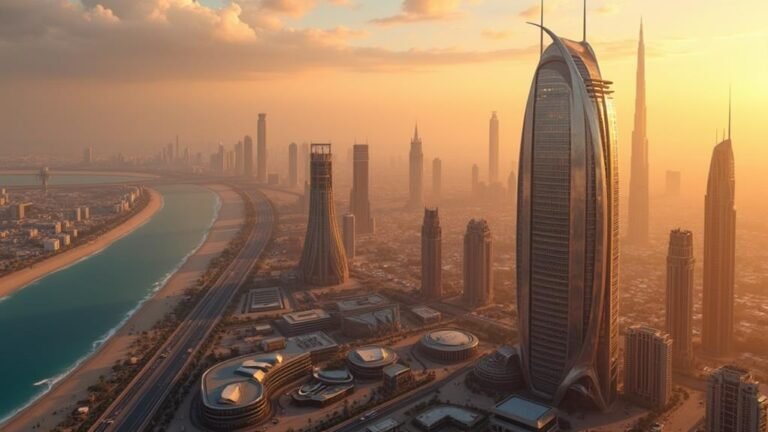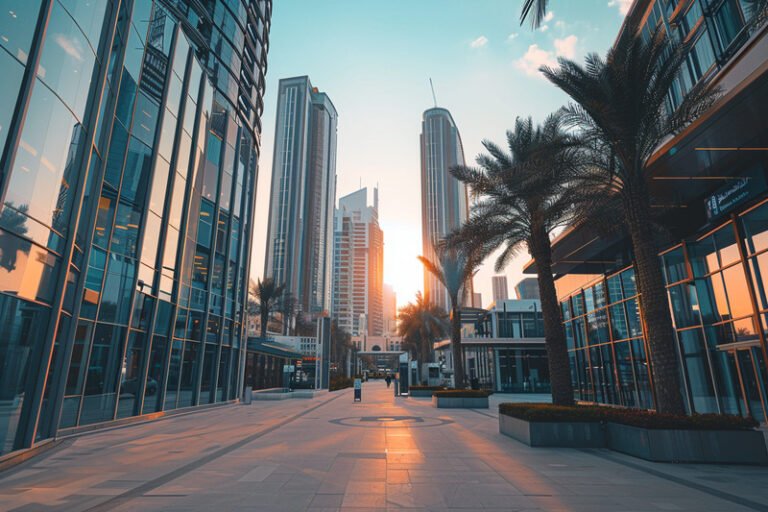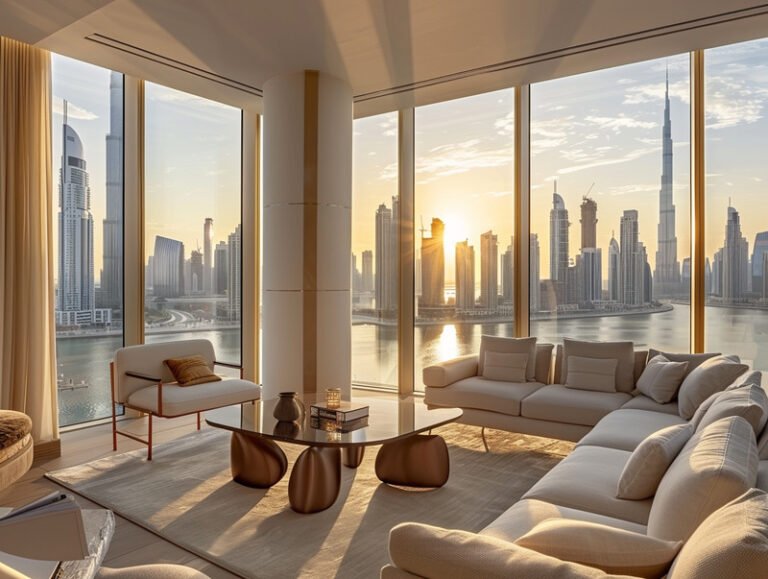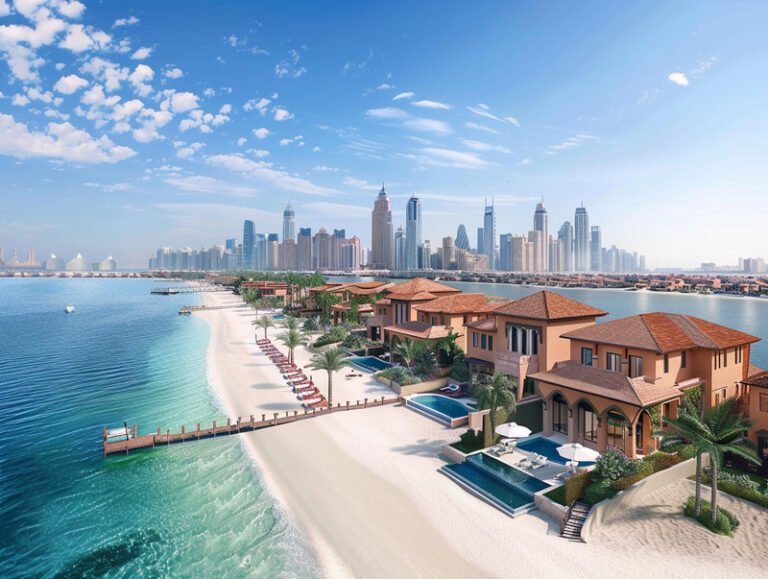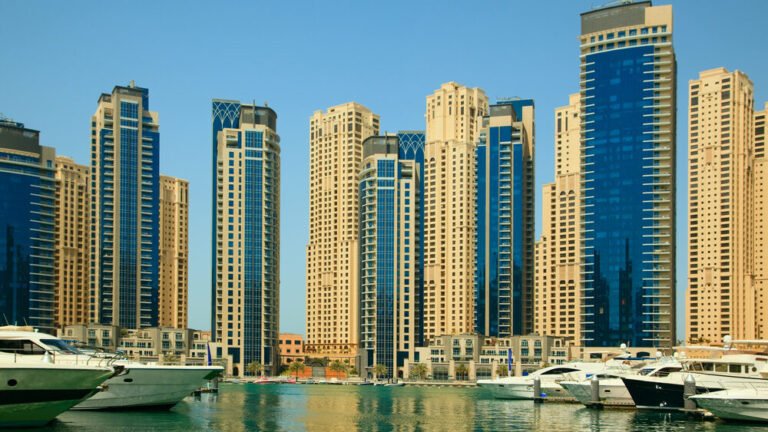Hidden Costs to Be Aware of When Buying Property in Dubai
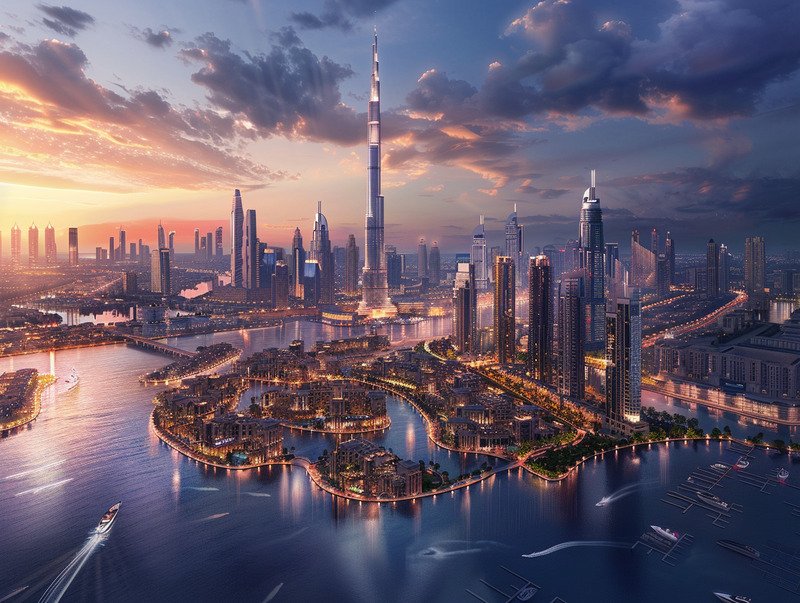
When buying property in Dubai, be aware of hidden costs. Registration fees with the Dubai Land Department are 4% of the property value, plus an administration fee ranging from AED 500 to AED 5,000.
Maintenance costs should be planned for regular upkeep and unexpected repairs. Service charges cover communal amenities and can increase.
There’s no annual property tax, but you’ll face one-time fees like the knowledge and innovation fees.
Utility expenses, managed by DEWA, are high due to Dubai’s climate. Understanding these costs can help in your overall planning.
Let us help you find the perfect property. Contact us to get started.
Registration Fees
When purchasing property in Dubai, you’ll need to budget for registration fees, which can quickly accumulate. The Dubai Land Department (DLD) imposes a registration fee of 4% of the property value. This fee is necessary for legally transferring ownership and registering the property under your name.
It’s typically divided between the buyer and the seller, but in some instances, you might have to cover the entire amount, depending on your agreement.
Moreover, there’s an administration fee that ranges from AED 500 to AED 5,000, depending on the property type and value.
If you’re purchasing through a mortgage, you’ll need to take into account the mortgage registration fee, which is 0.25% of the loan amount. This fee ensures that your mortgage is legally acknowledged and documented.
Another cost to keep in mind is the trustee office fee, which is approximately AED 4,000. Trustee offices act as intermediaries, guaranteeing that all paperwork is accurately processed and registered with the DLD. This fee might seem minor compared to others, but it’s important for a smooth transaction.
Maintenance Costs
Beyond the initial registration fees, you’ll also need to budget for ongoing maintenance costs to keep your property in Dubai in top condition. These costs can vary widely depending on the size and type of property, as well as its location. Generally, maintenance costs cover regular upkeep, such as cleaning, painting, and minor repairs. If your property includes a garden or a pool, you’ll also need to factor in the costs for landscaping and pool maintenance.
Routine maintenance is vital to prevent minor issues from becoming major problems. This includes checking plumbing, electrical systems, and air conditioning units, especially given Dubai’s harsh climate. Neglecting these can lead to costly repairs down the line. You might also need to budget for pest control services to make sure your property remains free from infestations.
It’s important to set aside funds for unexpected repairs. These can include anything from fixing a leaky roof to replacing aging appliances. Having a contingency fund can save you from financial stress when these unexpected costs arise.
To get a better idea of what to expect, consult with a property management company or other property owners in the area. This way, you can plan your budget more effectively.
Service Charges
In addition to maintenance costs, you’ll also need to budget for service charges, which cover communal amenities and facilities in your property complex. These charges are typically required for properties within gated communities, apartment buildings, or mixed-use developments. Service charges help maintain shared spaces such as swimming pools, gyms, gardens, and security services. They play a vital role in ensuring that the communal areas remain in good condition and are available for your use.
Service charges are generally calculated on a per square foot basis, so larger properties will incur higher fees. The rates can vary depending on the developer and the quality of the amenities provided. It’s crucial to review the service charge rates before finalizing your purchase to understand the ongoing costs you’ll face. Annual service charges can add a significant amount to your property expenses and shouldn’t be overlooked.
Additionally, keep in mind that these charges are subject to change, so it’s prudent to budget for potential increases in the future. Some developments offer detailed breakdowns of where your fees are allocated, providing transparency. Always request this information to ensure you’re getting value for your money.
Property Taxes
Have you considered the impact of property taxes on your budget when buying property in Dubai? Unlike many countries, Dubai doesn’t impose an annual property tax, which can be a significant relief for potential buyers. However, that doesn’t mean you’re entirely free of tax-related costs.
You’ll encounter a one-time fee known as the Dubai Land Department (DLD) fee, which is typically 4% of the property’s purchase price. This fee is essential to factor into your budget, as it can add a substantial amount to your initial expenses.
Additionally, there’s the knowledge fee, which is AED 10 for an apartment and AED 40 for a villa, along with the innovation fee, which is AED 10 for both types of properties. Although these fees are relatively minor, they’re still important to account for in your overall financial planning.
If you’re taking a mortgage, there’s also a mortgage registration fee of 0.25% of the loan amount plus an administration fee of AED 290. These costs, while not excessive, can accumulate, making it important to include them in your financial considerations.
Utility Expenses
When purchasing property in Dubai, it’s crucial to take into mind ongoing utility expenses, such as electricity, water, and cooling, which can greatly impact your monthly budget. The Dubai Electricity and Water Authority (DEWA) manages these utilities, and their costs are typically higher than in many other regions. You’ll need to budget for both the initial connection fees and the monthly usage charges, which vary depending on your consumption.
Electricity charges in Dubai are generally tiered, meaning the more you use, the higher the rate you pay. Water costs also follow a similar structure, and during the hot summer months, these expenses can rise significantly. Cooling is another critical factor to take into account, as Dubai’s climate necessitates air conditioning for most of the year. Many properties use district cooling systems, which can be more cost-effective but still represent a sizable monthly expense.
Furthermore, be mindful that some residential communities include utility costs within their service charges, while others do not. Understanding the specific terms of your property will help you plan your finances accurately.
Conclusion
When buying property in Dubai, it’s important to take into account hidden costs like registration fees, maintenance costs, service charges, property taxes, and utility expenses. Understanding property prices in Dubai is also crucial, as they can vary greatly depending on factors such as location, amenities, and the current real estate market. It’s important to research and compare prices in different areas before making a decision. Additionally, working with a reputable real estate agent can help navigate the complex process of buying property in Dubai and provide valuable insight into the local market.
These additional expenses can greatly affect your overall budget. By understanding these costs upfront, you can make a more informed decision and avoid unforeseen financial burdens.
Always conduct thorough research and seek professional advice to make sure you’re fully prepared for the financial responsibilities of owning property in Dubai.
Let us help you find the perfect property. Contact us to get started.


